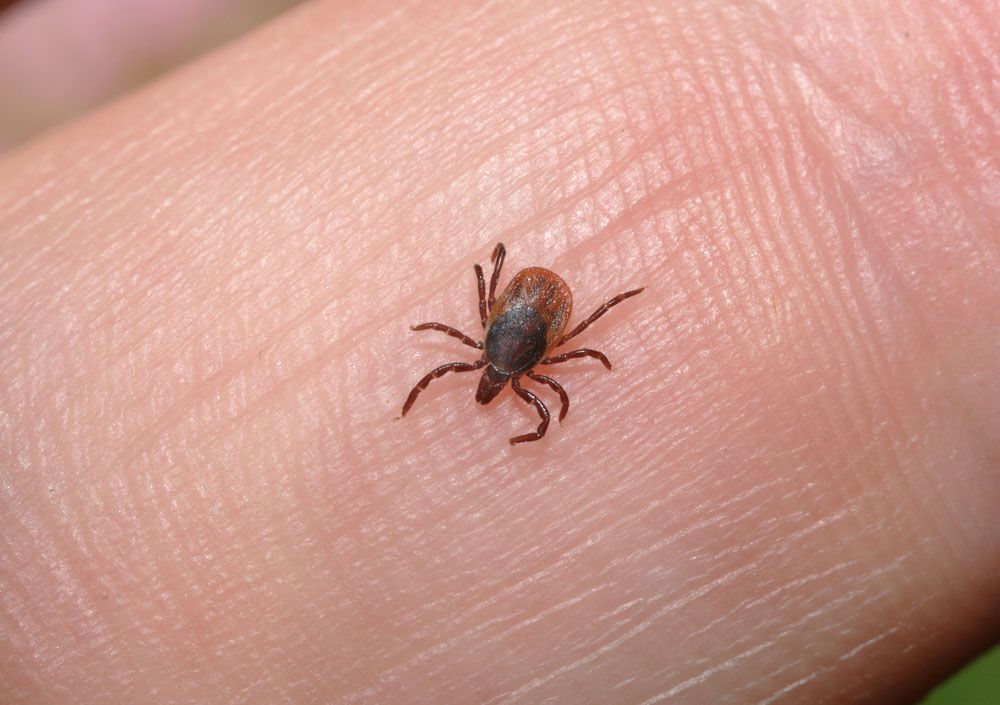Meat Allergy Linked to Ticks Found in Kids

Some children living in the U.S. Southeast have a rare meat allergy linked to tick bites, according to a new study.
Bites from ticks, usually lone star ticks, cause the body to become allergic to a protein called alpha-gal — which also happens to be found in some mammals, including cows, pigs and sheep, the researchers said. When people who have been bitten develop this allergy, and then eat meat from these animals, they can experience hives, swelling, or more rarely, a life-threatening allergic reaction known as anaphylaxis.
Cases of the meat allergy in adults were first reported in 2008, and have been on the rise in recent years, the researchers said. The new study is the first to describe the allergy in children, said study researcher Dr. Scott Commins, an assistant professor of medicine and pediatrics at the University of Virginia.
The study identified 45 kids with the allergy who visited clinics at the University of Virginia or in the surrounding area. All of the children had experienced recurrent hives or anaphylaxis, and tests revealed they had antibodies against the alpha-gal protein, which are involved in the allergic reaction. In addition, all of the children had been bitten by ticks in the past.
Commins said he suspects that this meat allergy is underdiagnosed. Because the allergic reaction is delayed — occurring three to six hours after eating meat — people may not think to link the meat they ate earlier to their later reaction. This may be particularly true in children, who would typically need parents to make the link for them, Commins said.
In many cases, the meat allergy eventually goes away. But if patients experience more tick bites, they may see their allergy come back, Commins said.
The new study did not include a so-called food challenge test that could prove that meat was responsible for the children's allergies. During a food challenge, a patient eats a particular food and waits to see if there's a reaction. Commins said he did not feel comfortable performing a meat food challenge in children because sometimes the reactions to meat for those with allergies can be quite severe. But previous studies have shown that adults with antibodies against alpha-gal react to meat in a food challenge.
Sign up for the Live Science daily newsletter now
Get the world’s most fascinating discoveries delivered straight to your inbox.
The American College of Allergy Asthma and Immunology agrees that there's a link between tick bites and the development of meat allergy, but notes that meat allergy is uncommon.
The researchers aren't sure why there's been an increase in this allergy in recent years. But an increase in awareness about the condition, or a change in the tick population, could play a role.
There's currently no treatment for the condition except to refrain from eating meat. The best way to prevent the allergy is to avoid tick bites, Commins said.
The study was presented last month at the American Academy of Allergy, Asthma & Immunology's annual meeting in San Antonio, Texas. It is set to be published in an upcoming issue of the journal Pediatrics.
The researchers have received funding for other work from ViraCor-IBT Laboratories, a company that provides diagnostic testing for allergies and other diseases.
Pass it on: A rare meat allergy previously identified in adults has also been found in children.
Follow Rachael Rettner @RachaelRettner. Follow MyHealthNewsDaily @MyHealth_MHND, Facebook & Google+.

Rachael is a Live Science contributor, and was a former channel editor and senior writer for Live Science between 2010 and 2022. She has a master's degree in journalism from New York University's Science, Health and Environmental Reporting Program. She also holds a B.S. in molecular biology and an M.S. in biology from the University of California, San Diego. Her work has appeared in Scienceline, The Washington Post and Scientific American.











